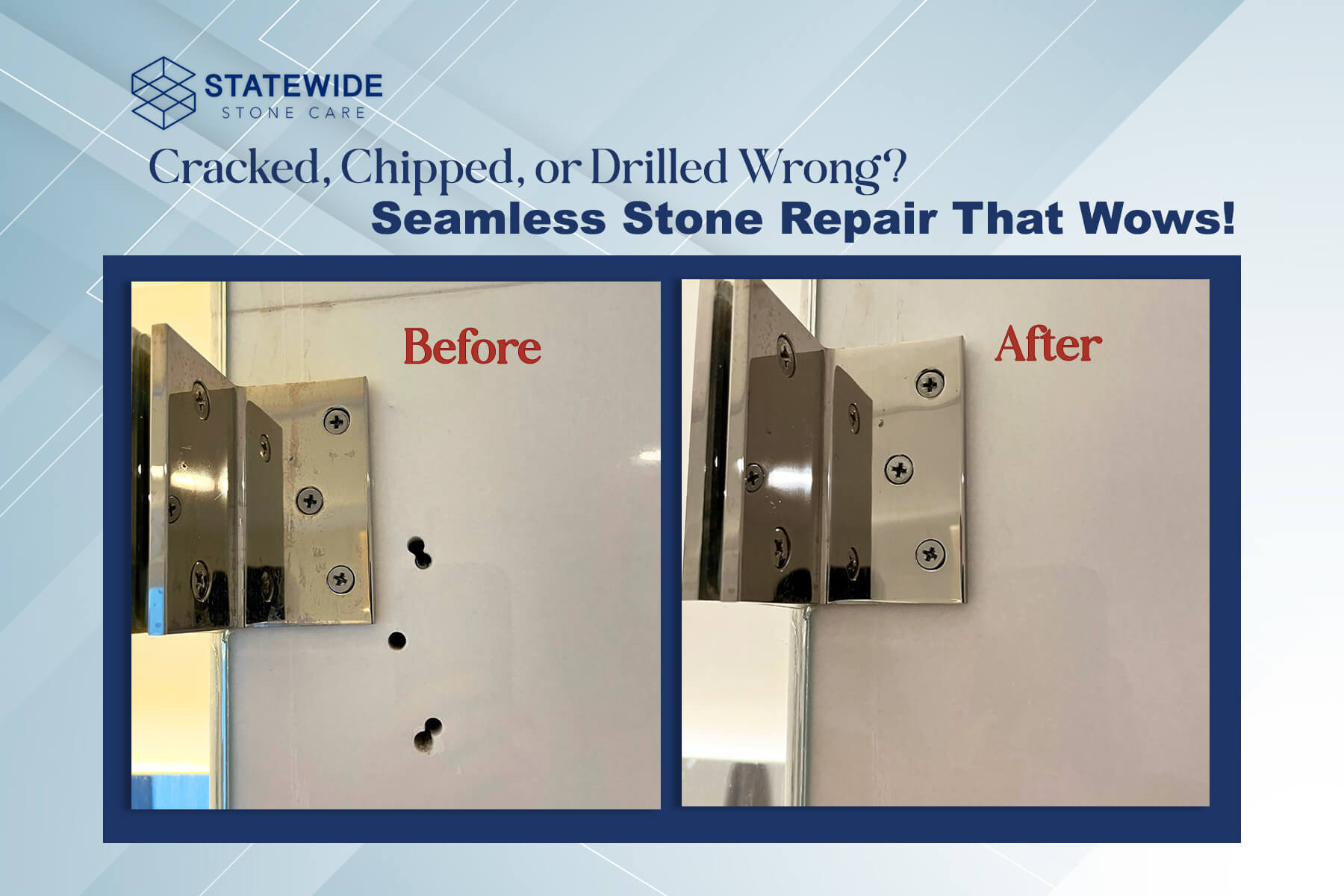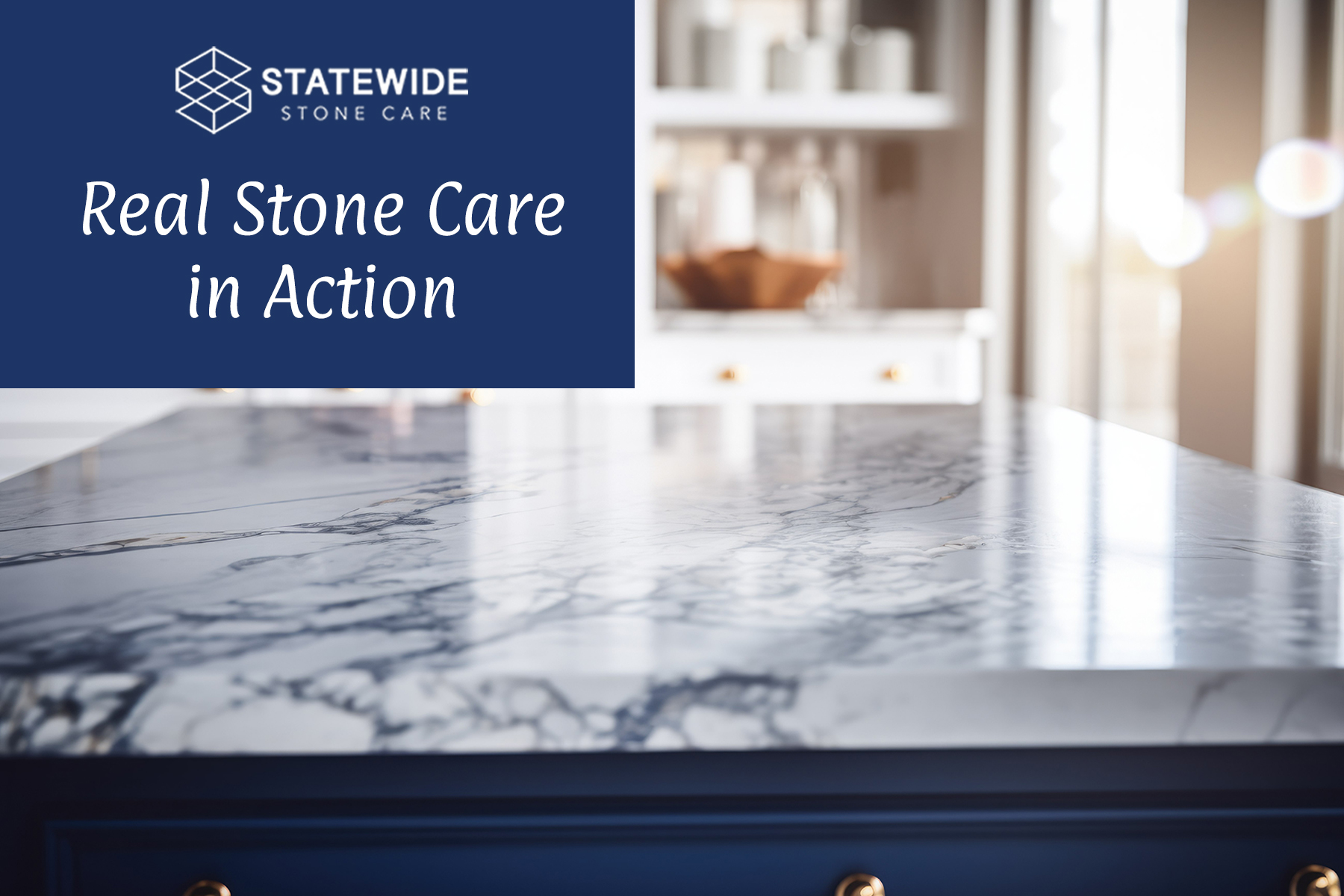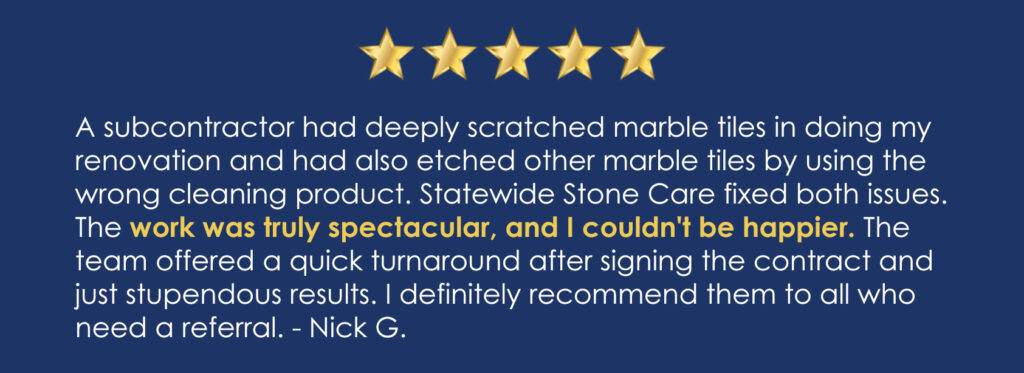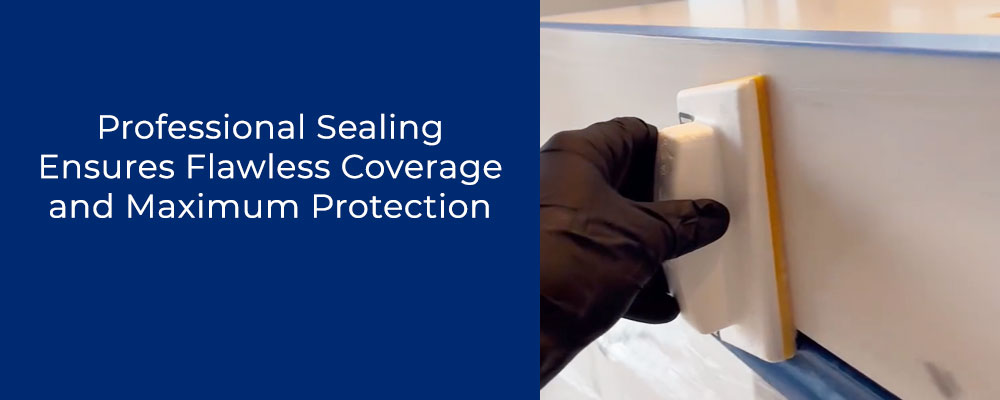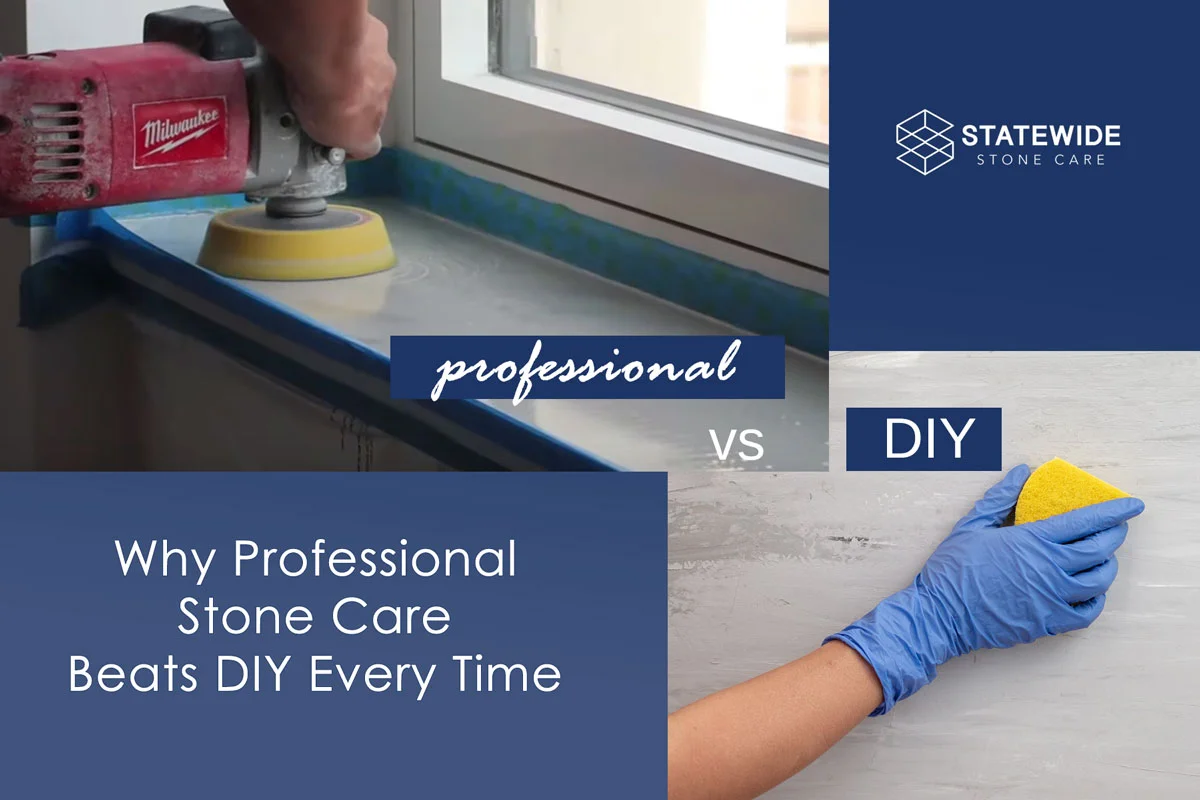Natural stone is a beautiful investment, but the quality and precision of work make all the difference in maintaining its appearance and durability. Marble, granite, quartz, and travertine surfaces can be vulnerable to everyday accidents, and seeing chips, cracks, or breaks can feel discouraging. The good news is that most damage can be repaired by Statewide Stone Care in NYC—often without the cost and hassle of full replacement.
Cracks, Breaks, and Chips – Fixed to Perfection
Accidents happen. You might chip a countertop corner, drill a hole in the wrong spot, or notice a crack slowly developing over time from heavy use or natural settling. Damage can appear suddenly or gradually, but it doesn’t have to mean replacing your stone.
Replacing a countertop, vanity, or floor tile can be expensive, disruptive, and time-consuming. Ordering new stone, waiting for fabrication, and scheduling installation can take weeks or even months. Stone restoration offers a faster, cleaner, and more cost-effective solution.
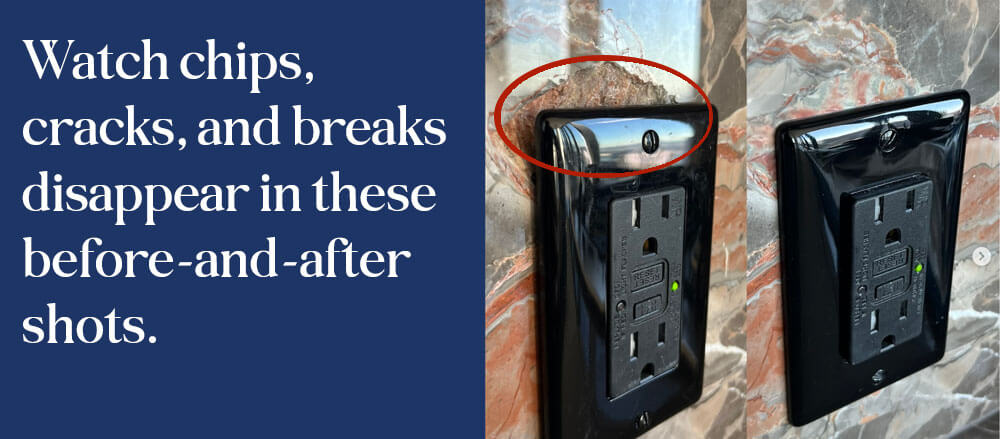
Our Approach: Strong, Seamless, and Lasting
Restoring stone isn’t just about covering up the problem—it’s about repairing it at the source. Using specialized tools, adhesives, and expert techniques, damaged stone surfaces can be restored to their original beauty and structural integrity.
Key components of a professional stone repair include:
Expert Crack & Break Repair – From hairline fractures to major breaks, repairs restore both strength and appearance.
Flawless Color & Texture Match – Detailed color-matching ensures repairs blend seamlessly with the surrounding stone.
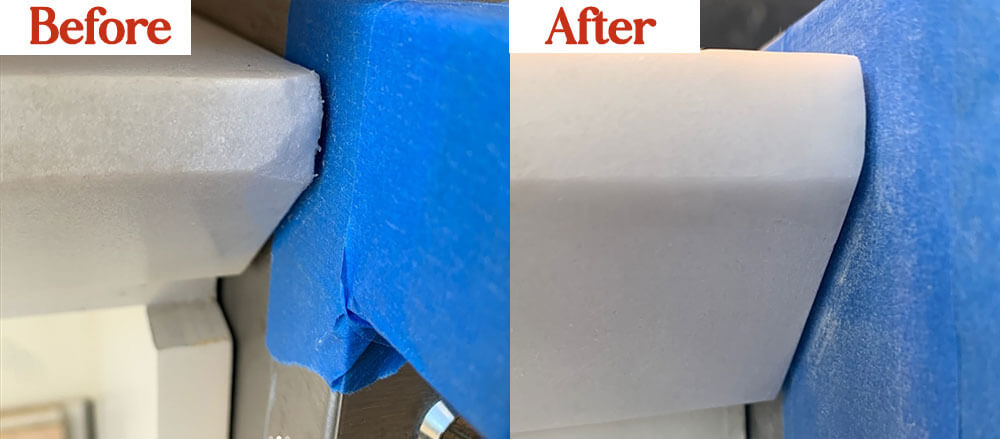
Specialized Care for All Stone Types – Marble, granite, travertine, quartz, and more can be repaired effectively.
The result is a surface that looks natural, often stronger than before, and ready to last for years.
Why Restoration Is Better Than Replacement
Stone restoration offers multiple benefits:
Faster – Many repairs can be completed in a single visit.
Cleaner – No demolition, no dust-filled mess, and minimal disruption.
Eco-Friendly – Reusing existing stone reduces waste.
Cost-Effective – Typically a fraction of the cost of full replacement.
High-quality repairs also help protect your stone, extending its life and maintaining its value.
Expert Attention for Your Stone
Stone surfaces are often the centerpiece of kitchens, bathrooms, and commercial spaces. Cracks, chips, or drilling mistakes don’t have to distract from their natural beauty. With the right tools, techniques, and experience, damaged surfaces can be restored so well that the repair is nearly invisible.
Don’t live with damage—your stone can shine like new again.
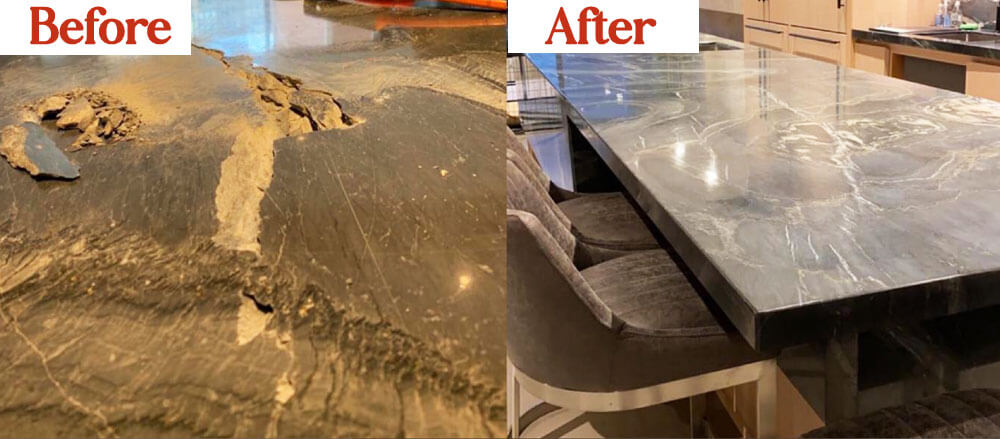
Training Day at Statewide Stone Care: Sharpening Our Skills
At Statewide Stone Care, excellence comes from continuous learning. The team regularly trains to stay current with the latest techniques and technology in stone care.
A recent training session focused on the MORE® Antietch Application, a solution that protects marble from etching and staining while enhancing its natural beauty. This advanced treatment allows for long-lasting results and added protection for clients’ stone surfaces.
Regular training ensures that every repair, restoration, and protective service meets the highest standards. When you choose a skilled team, you’re getting professionals who are dedicated to flawless results and take pride in their craft.
Because when it comes to stone, quality isn’t optional—it’s essential.

